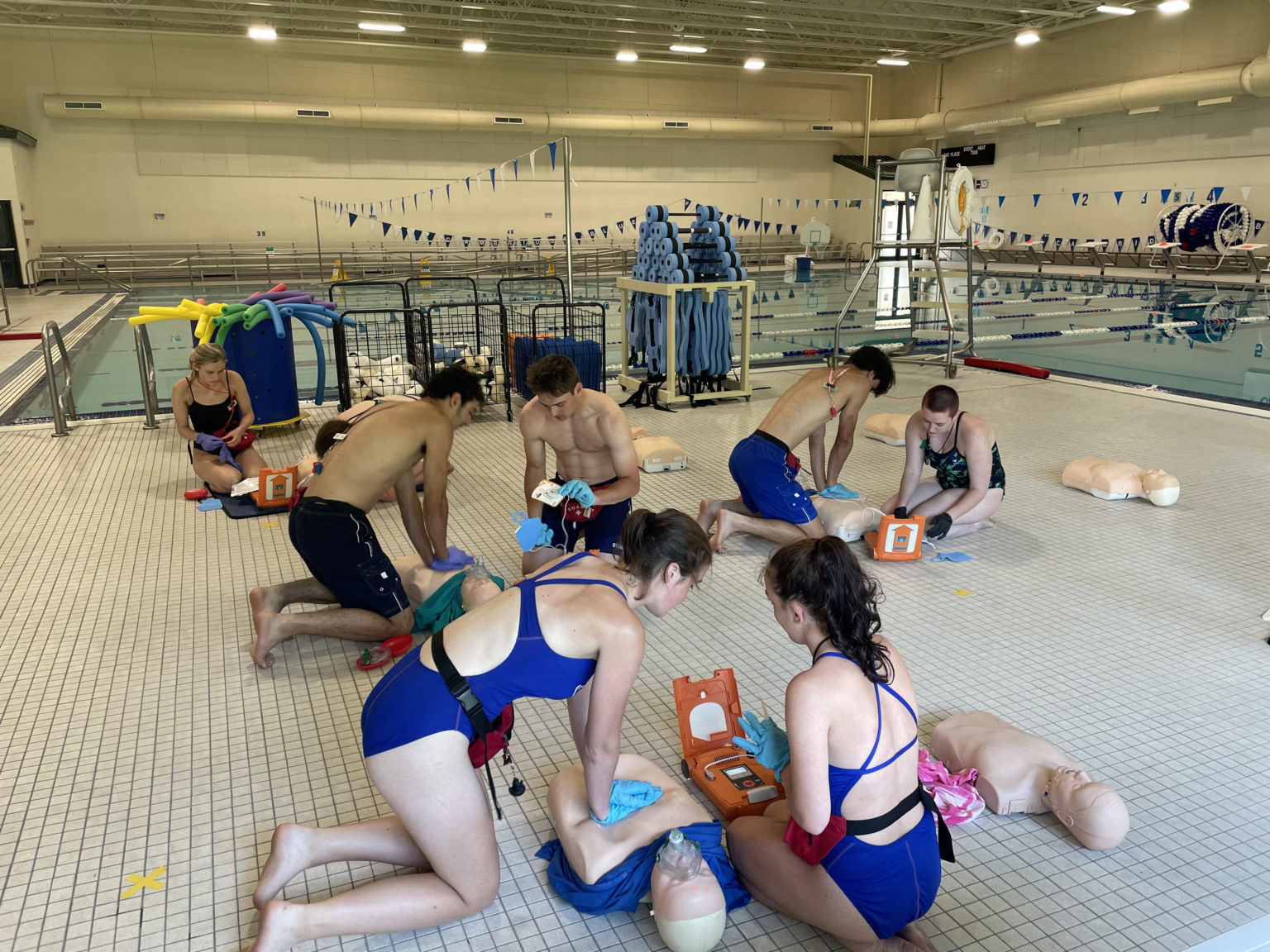Lifeguarding is in many cases seen as an ideal job, including sunny beaches, playful kids, and the opportunity to help other people. However, the reality is undeniably more complicated and demanding. From ensuring the safety of swimmers to managing eccentric weather conditions, lifeguards face a huge number of challenges that can essentially impact their capacity to really play out their duties.
In this article, we will investigate the different hindrances lifeguards experience in their profession, revealing insight into the vital importance of comprehensive training through lifeguard courses.
The Strain of Responsibility
One of the most overwhelming challenges for lifeguards is the immense responsibility they shoulder. They are entrusted with the safety of incalculable people who incessant public pools and beaches. This responsibility can be overpowering, especially during top hours when huge groups accumulate.
Lifeguards should stay vigilant and alert, continually examining the water for indications of pain or risk. This strain to perform can prompt pressure and nervousness, which might influence their concentration and generally speaking job execution.
Emergency Circumstances and Quick Decision-Making
Emergencies can happen without warning, expecting lifeguards to respond quickly and actually. Whether it’s a drowning incident, a medical emergency, or a catastrophic event, lifeguards should be ready to act quickly and definitively. This demands fantastic actual skills as well as strong decisive abilities to reason.
In high-pressure circumstances, the capacity to keep quiet and settle on the right choices can be the contrast among life and death. Lifeguards frequently partake in thorough ALA lifeguard courses programs that underscore emergency reaction and decisive reasoning, furnishing them with the skills important to deal with these situations.
Physical and Mental Demands
Lifeguarding is a physically demanding job that requires endurance, strength, and readiness. Lifeguards spend extended periods of time on their feet, frequently in blistering weather, while staying prepared to act quickly at a moment’s notification. This can prompt actual exhaustion, which might obstruct their adequacy during crucial points in time.
Furthermore, the mental strain related with consistent watchfulness can prompt burnout. Lifeguards should track down ways of overseeing both their physical and mental health to keep up with their exhibition and ensure the safety of those they regulate.
Weather Challenges and Environmental Factors
Weather conditions can radically influence a lifeguard’s capacity to play out their duties. Rain, wind, and extreme heat can make unsafe swimming conditions, expecting lifeguards to make quick judgments about whether to close a beach or pool. Antagonistic weather can likewise prompt perilous circumstances, for example, strong currents or lightning strikes, which can seriously endanger the two lifeguards and swimmers.
Training through lifeguard courses plans lifeguards to perceive these conditions and respond fittingly, yet the eccentricism of nature can in any case present huge challenges.
Communication and Teamwork
Compelling communication is essential for lifeguards, particularly when working as a feature of a group. Lifeguards should organize with each other to ensure a careful surveillance of the swimming region and to share basic data about potential hazards. Miscommunication can prompt serious incidents, making teamwork a vital part of lifeguarding.
However, diverse groups might face challenges, including varying communication styles and levels of experience. Lifeguard courses frequently consolidate teamwork training to get ready lifeguards to work strongly and really with their partners.
Public Interaction and Conflict Resolution
Lifeguards communicate with a large number of individuals, including swimmers, guardians, and beachgoers. This interaction can sometimes prompt conflicts, particularly when upholding rules and guidelines. Lifeguards should adjust keeping up with safety and authority while additionally being congenial and conscious.
Taking care of tough spots tranquilly and professionally is essential, however it very well may be challenging, especially when managing forceful or inebriated people. Lifeguard courses frequently include conflict resolution training to outfit lifeguards with the skills important to successfully deal with these interactions.
The Importance of Ongoing Training
Given the bunch challenges faced by lifeguards, it is essential to ongoing training. American lifeguard classes give fundamental information and skills, however lifeguards should keep on developing their mastery all through their careers.
Ordinary training boosts and workshops assist lifeguards with remaining refreshed on the most recent safety protocols, emergency procedures, and techniques. This commitment to ongoing education improves their exhibition as well as imparts trust in their capacities.
Final Word: The Lifeguard’s Commitment
The challenges of lifeguarding are numerous and complex, requiring a unique mix of physical, mental, and interpersonal skills. Lifeguards should explore the tensions of responsibility, respond to emergencies, and deal with the actual demands of their role, all while keeping up with viable communication and teamwork. By enrolling in lifeguard courses, hopeful lifeguards can furnish themselves with the essential skills and information to face these challenges head-on.
Organizations like the American Lifeguard Association offer significant training assets that plan lifeguards for the realities of their calling. As watchmen of safety, lifeguards play a basic role in ensuring the prosperity of swimmers, and their dedication merits recognition and support.
